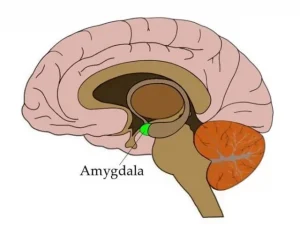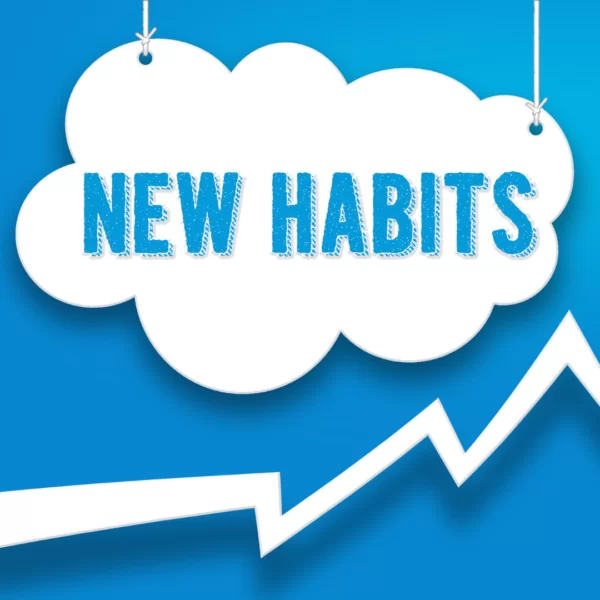
How to Reset Amygdala
Our brain’s Amygdala, a tiny but magnificent superstar, is located deep among its hidden chambers. This fascinating small structure holds the key to revealing the
We all have 24 hours in a day. We all have roles to play, tasks to do, and opportunities that are more or less sufficed in making us build our success story.
Even when the effort, hardwork, and knowledge remain uniform, then what is it that sets some people apart from the crowd? What is it that makes them more effective with their tasks, goals, and ambitions?
What are the habits of successful people?
It’s always easier said than done. There are various books, articles, and podcasts that explain so well about habits that can improve our life. But if it was so easy, almost everyone would be the magnate!

Our brain is developed in such a way that it is looking for pleasures or rewards. When the brain recognises a pattern, such as that of an action and satisfaction, it files an information in an area of the brain, and leads to us keep on repeating them without even aware about what is making us do that.
This makes it so hard to break a habit. We lose conscious control over it and are barely aware of why we are doing it.
This makes an endless loop. And without even knowing, we find it hard to get out of it.
The 7 Habits of Highly Effective People describes very well about 7 such habits, adopting which can help us achieve our maximum efficiency, and maintain a workflow.
But what creates the dawdle in the path of adopting these habits and achieving a better lifestyle?
Let’s find out what are these habits, and dig deeper to uncover the science behind them.
Making a well-defined plan before taking an action. Focus on what you can control, and give up on what you can’t.
The idea is to build a roadmap, to avoid wasting your efforts by leaning over the wrong wall. Reactiveness is to respond to the crisis responsibly. But being proactive is to be prepared for it beforehand. Both of these state responsible nature, while reactive is to let the circumstances and conditions control us, proactive is to recognize already that you are ‘response-able’, instead of waiting for the crisis/circumstances to arise.
But one cannot be proactive all the time. It requires motivation, internal triggers, and various other factors that can’t take over the human mind all the time, though we can still try step-by-step to achieve it better.
Prioritizing important tasks over urgent ones.
This sounds quite easy and achievable, but in our day-to-day life, we get caught up in so many transient and unimportant tasks, that we tend to skip the purpose we are doing this for. We skip the importance of time and blur the larger context, which can derail us from the path. Not everyone can prioritize many things beforehand, and oversee challenging tasks. So following with these completely requires good time-management, commitments, and a planner to follow by.
Make room for others’ needs and perspectives, and listen before you act.
Most of the time, we are not open to ideas and distort the communication channel, which further leads to miscommunication. Also, we lack the skill of effective listening, which can be due to distractions, or so many things going on in the head.
We often find it hard to fit ourselves into someone else’s shoes and take things from their perspective. What is it that causes the gap?
We do not hear to understand but to reply, which causes discrepancy, and miscommunication, mostly which occurs due to making assumptions or missing out on the context.
Have room for constant improvement by renewing activities and inputs, which can lead to an innovative, synergetic solution.
The idea is to preserve and enhance the greatest asset you have – you!
Life is all about constantly learning, improving, and implementing. No matter how competent you are, if you are not capable to influence, engage, collaborate and improve, you are stagnant.
And where the river becomes stagnant, life gets perished.
It is obvious to derail away from the betterment and miss out on the bigger picture while doing the daily, unimportant tasks that are urgent for the timestamp. But giving out 100% percent to each transient small habit can also build a bigger, better picture. The idea is to maintain a balance between the two.
Synergizing is one concept that seems subjective. Because you cannot satisfy everyone all at once. But constant improvement and enhancement can be a key to coming up with an alternative innovative solution that can satisfy the likes of the people involved, at least the majority of them. Though this also requires openness to new ideas, but also to keep in mind the big picture you have, to avoid derailing away by distractions through alternative ideas. Accepting alternatives from every side, and leading to a direction towards your goal should be your hard-on-dart focus.
Build better relationships with mutual competency.
Sometimes, while practicing the others, we get so self-oriented and result-driven, that we tend to forget the winning of others involved with us. And this requires patience.
It’s obvious we can only see others with our win when we achieve it along. But thinking win-win is to finding a solution that can provide competency to all of us.
Summarising all the habits that make us more efficient, with better management of your tasks, you can increase your performance bar, without working longer hours, or additionally induced stress levels. But there is a lot we need to keep in mind, and might slip out from managing all at once.
Your habits do not necessarily guarantee you stimulated success, but your habits define you, which help you be in the longer game.
In order to get rid of the negative habits and adopt the good ones, we need to break the loop of cue and habits, and start new ones which help us reach our maximum potential.
“Genius is knowing when to stop!”
Mindfulness can be efficient in training your brain to build better and orderly habits, which can make bits of the byte that tend to change the whole hard disk of your plan.
Mindfulness can help you curb self-defeating habits and overcome the momentary quest for what seems pleasurable now but can be destructive in the long run.
Here are some of the practices you can do to overcome a ‘mind that is full’, and develop being ‘mindful’:-
Your habits are the ones that make you or break you. It depends upon you on how you choose to develop yourself and encourage a positive outlook on things that are shaping you into a better person.
Adopt wisely and practice wisely to become a better, more efficient version of yourself.
Here are some of the practices you can do to overcome a ‘mind that is full’, and develop being ‘mindful’:-
Your habits are the ones that make you or break you. It depends upon you on how you choose to develop yourself and encourage a positive outlook on things that are shaping you into a better person.
Adopt wisely and practice wisely to become a better, more efficient version of yourself.

Our brain’s Amygdala, a tiny but magnificent superstar, is located deep among its hidden chambers. This fascinating small structure holds the key to revealing the
Get a discount in your email!
